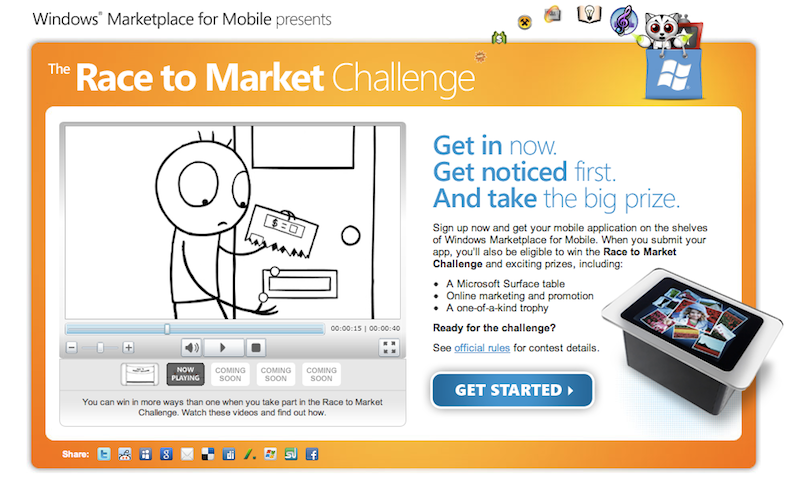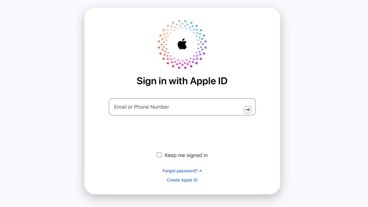Windows Phone 7 developers fear platform flop
On top of dead launch events reminiscent of the failed Microsoft KIN (which essentially ran an early, limited version of the WP7 platform) and poor unofficial sales reports, an apparent gag on app analytics is preventing developers from seeing how many of their apps have actually sold. Microsoft is reportedly also withholding any payments to its app developers through February 2011.
Disgruntled developers fret about platform's future prospects
Two WP7 developers, Nicholas Yu of GoVoice (a Google Voice client app) and Justin James, who created an Airport Status Checker app for WP7, have both complained that Microsoft isn't providing developers with app store analytics to indicate how many titles they've actually sold.
Yu described this problem to be significant enough to hold up his investment in adding requested features such as push notifications. "Currently I have no idea how many copies of GoVoice are sold nor did I receive a single paycheck," Yu wrote in his development blog. "Implementing Push is a very risky thing for me because I need to justify that the expenses will cover the maintenance cost of a Push server. If Push is implemented, the expenses are coming straight out of my paycheck, and that is very sensitive to me."
James repeated similar concerns, noting that "there will be no payouts from [the WP7] App Hub [to developers] until February 2011, and there is no built-in reporting on downloads as of now."
He outlined a variety of problems in working with Microsoft's share App Hub developer site for WP7 and Xbox 360, and concluded, "unless you consider Windows Phone 7 to be a 'must do' platform for development (which is quite unlikely), I suggest that you think of Windows Phone 7 development as a hobby or a learning experience rather than a source of revenue until the App Hub issues are sorted out."
In contrast, Apple has promoted the fact that it has distributed over $1 billion in payments to its developers from the sales of their apps, which now exceed 300,000 titles that have seen more than 7 billion downloads. Apple has sold over 73 million iPhones, in addition to tens of millions of iPod touch and iPad devices that also run iOS apps.
Not an app for that
Last fall, Microsoft's Windows Marketplace for Mobile began cultivating a software app store for the company's Windows Mobile 6.5 patterned after Apple's iTunes App Store, encouraging developers to "get in now, get noticed, and take the big prize," in a Race to Market Challenge that offered the chance to win a Surface table, online marketing and promotion, and a "one-of-a-kind trophy."
Just a few months later, the company decided to start over completely with WP7, throwing out compatibility with existing titles its developers had 'raced to deliver' but which were largely dependent upon an outdated, PDA-style windowing environment driven by a stylus. Apple's Steve Jobs had declared the stylus obsolete for modern mobile devices back at the iPhone's launch in early 2007.
In its place, Microsoft assembled a new development model around WP7, using Silverlight and Xbox XNA development tools. At the same time, it began downplaying the importance of apps in general by suggesting WP7 devices were more efficient and business-like because they purposely wouldn't offer much to consume users' attention.
This strategy has enabled Microsoft to associate its Xbox developers with WP7 development, claiming earlier this week that "we’ve also seen a near 80% increase in the number of registered [WP7] developers since September, with more than 15,000 developers already signaling their intent to bring exciting content to Windows Phone." The same blog posting noted that Microsoft planned to make 3,000 apps available for WP7 this month.
WP7's lackluster launch
However, whether WP7 can ever achieve a user base large enough to support its developers is in question. The availability of XNA development tools for the Zune HD, and their familiarity to Xbox coders, has not had any impact on creating a viable software market for that device, largely due to poor hardware sales among consumers.
Curiously, Microsoft had no problems reporting app sales data to its developers in the Windows Marketplace for Mobile store last year, indicating that the missing functionality related to sales data in the new WP7 App Hub is an intentional effort to avoid any leaks of hard data that would show how badly WP7 phones are actually selling.
Windows Phone 7 launched alongside a $500 million ad campaign last month to lackluster sales estimated to be in the tens of thousands. In the UK, an Orange launch event opened to a line of just two people. Damage control headlines later suggested Orange had "sold out" of WP7 inventory without suggesting how many units that actually involved.
Retail store checks by BGR of fifteen AT&T locations throughout the US found dismal results for the new platform in its initial launch week, with the best reports claiming sales of ten to fifteen units while around half of the stores complained that they'd only sold between one and four of the new devices. AT&T has since started a "buy one get one" promotion for WP7, but hasn't released any hard sales data.
A report on mobile phone sales in the UK by MobilePlease and its network of retail partner sites said Microsoft's WP7 was being eclipsed not only by Android (14:1) but also accounted for just a third of the sales volumes of the beleaguered Symbian^3 platform, represented almost entirely by one model, the Nokia N8.
That report also noted that the new WP7 models "are by and large generic phones from well known manufacturers, and in most cases an almost identical model is available from the same manufacturer with Android, and given the choice people seem to be picking Android."
An informal survey of other retailers in the report agreed that while "demand for iPhone, Blackberry and HTC handsets was strong in the smartphone sector," they too had observed that "Windows Phone 7 handsets are not selling."
A more difficult game for new platforms with missing features
Reviews of new WP7 devices have also been dispassionate, with common complaints that the new devices offered nothing really new while failing to match the software features of existing Android and iPhone models that they compete against. WP7 offers no support for multitasking, universal search, arbitrary copy and paste, or a unified inbox with topic threads, for example.
Apple lacked many of those features in the iOS until recently, but it also enjoyed strong brand loyalty and a stand-out user interface that attracted buyers while it fleshed out its software feature list. Apple also didn't have to contend with more modern and feature-complete rivals during the development of iOS, because its show-stopping, uniquely new experiences such as a truly usable mobile web browser served to overshadow its limitations.
Android similarly started with significant feature omissions, but has slowly matured over the past three years to fill the vacuum created by the failure of Palm OS and Windows Mobile devices, leaving little low hanging fruit for Microsoft to reclaim this late in the game.
 Daniel Eran Dilger
Daniel Eran Dilger











 Mike Wuerthele
Mike Wuerthele

 Malcolm Owen
Malcolm Owen
 Chip Loder
Chip Loder

 William Gallagher
William Gallagher
 Christine McKee
Christine McKee
 Michael Stroup
Michael Stroup






